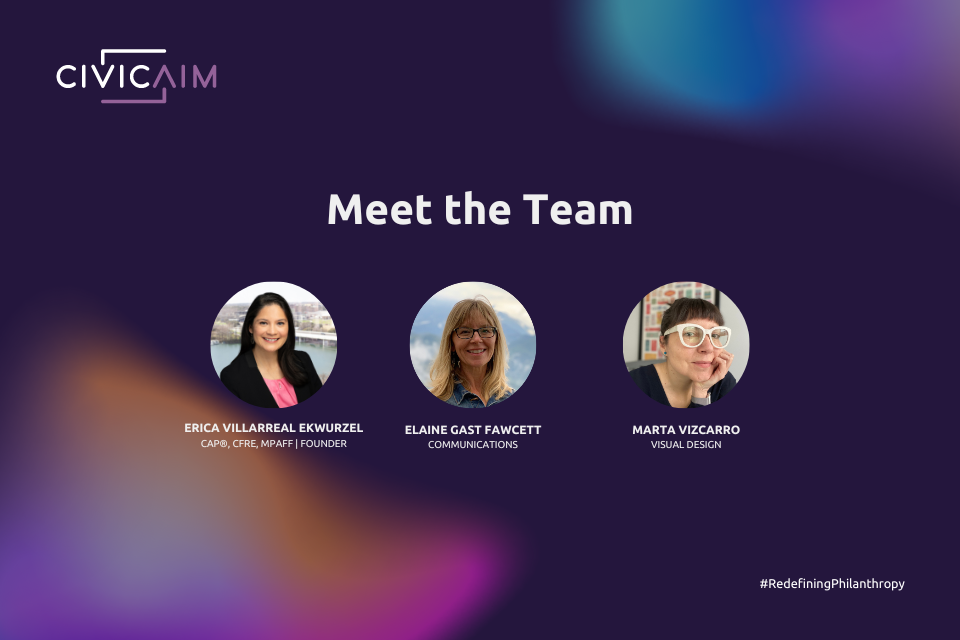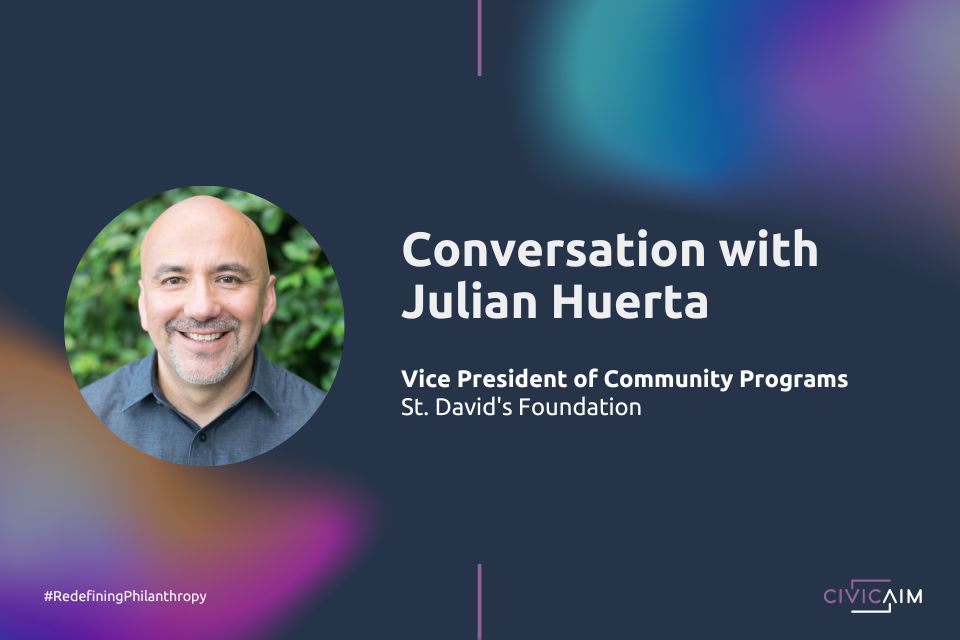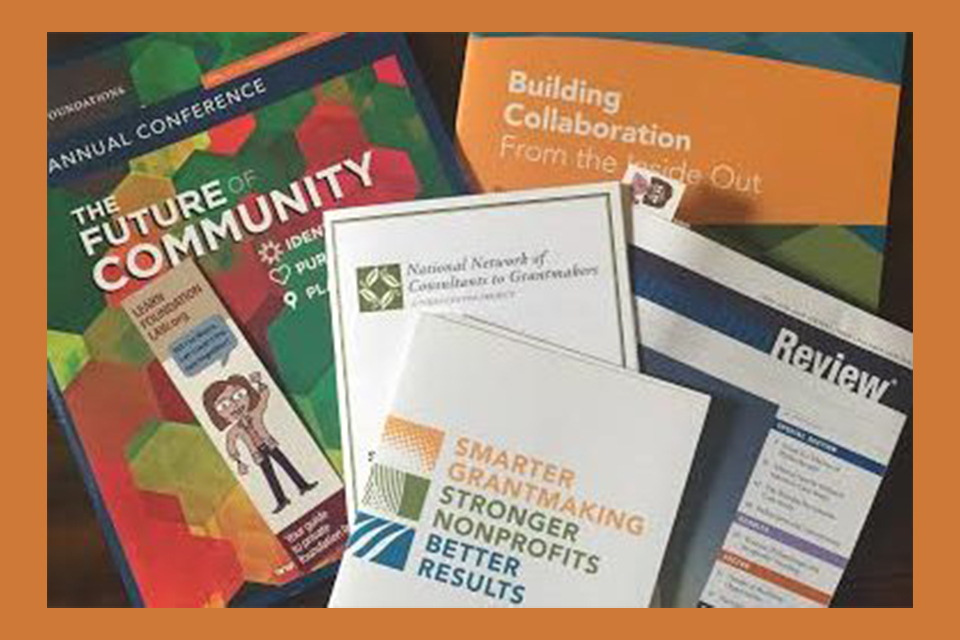March 10, 2023

I hope this finds you, your familia, and your organization well on the cusp of springtime. This past month, I was honored to receive the Amistad […]
December 18, 2022

With so much going on in the world, in our neighborhoods, and our lives, I find it helps to pause every now again and take a […]
August 25, 2022

Philanthropy is both my passion and profession. As a sector, philanthropic advising is quite dynamic, and over the course of my career, I have aspired to […]
May 24, 2022

I’m delighted to share the second video in Redefining Philanthropy in Practice and Profession, a new CivicAIM video series that features leaders who are at the […]
November 5, 2021

While the sun still shines warm in Austin this November, I am realizing we are soon headed into the cooler, quieter, darker time of year. It’s […]
March 2, 2021

With a new year well underway and spring—hopefully soon—around the corner, I’m looking forward to emerging out of what some would consider a dark, cold time. […]
November 25, 2020

With 2020 soon coming to a close (I can almost hear the collective sigh of relief!), I want to pause and recognize the good that has […]
September 28, 2020

I hope this finds you, your organization, and your family well. Covid-19 has challenged each one of us in different ways, keeping us home to consider […]
June 19, 2020

As a philanthropy practitioner of color, I have had the privilege to take on and practice responsibility in being the voice for minorities that reflect my […]
December 1, 2019

If you are a board or staff member of a small family foundation or funder group, chances are, grant evaluation falls last on your list. Perhaps […]
July 13, 2017

This blog was originally posted on a collaborative partner, Foundation Innovation’s e-newsletter, and is reposted here with permission. Okay, spoiler alert, this blog is not about […]
March 8, 2017

In an era of stringent cutbacks in state and federal assistance, thoughtful engagement in public policy is a critical tool for advancing (and sustaining!) mission-driven initiatives. […]
January 13, 2017

We all want data. It is a necessity for any grantmaking foundation, regardless of asset or staff size, to do its job effectively. Yet unfortunately, there […]
September 12, 2016

The number one question I hear grantmakers ask themselves time and time again is, “Are we making a difference?” This pinnacle inquiry often leads to a […]
August 9, 2016

The dog days of summer are approaching its end, and despite the hiatus from my blog, these past months have been anything but lazy! Summer, revered […]
April 30, 2016

The title of this month’s blog is indicative of the umbrella theme of this year’s Council on Foundation Annual Conference: The Future of Community. The quote […]
February 9, 2016

The Philanthropy Outlook With research projecting a rise of philanthropy upwards of 4.1 percent in 2016 and 4.3 percent in 2017, this increase in giving presents a remarkable opportunity to advance […]
December 17, 2015

I am proud to announce the launch of CivicAIM, a philanthropy consulting practice. With emphasis squarely on supporting grantmakers – private and family foundations, funder collaboratives, […]
November 25, 2020
With 2020 soon coming to a close (I can almost hear the collective sigh of relief!), I want to pause and recognize the good that has […]
September 28, 2020
I hope this finds you, your organization, and your family well. Covid-19 has challenged each one of us in different ways, keeping us home to consider […]
December 1, 2019
If you are a board or staff member of a small family foundation or funder group, chances are, grant evaluation falls last on your list. Perhaps […]
March 8, 2017
In an era of stringent cutbacks in state and federal assistance, thoughtful engagement in public policy is a critical tool for advancing (and sustaining!) mission-driven initiatives. […]
January 13, 2017
We all want data. It is a necessity for any grantmaking foundation, regardless of asset or staff size, to do its job effectively. Yet unfortunately, there […]
September 12, 2016
The number one question I hear grantmakers ask themselves time and time again is, “Are we making a difference?” This pinnacle inquiry often leads to a […]





